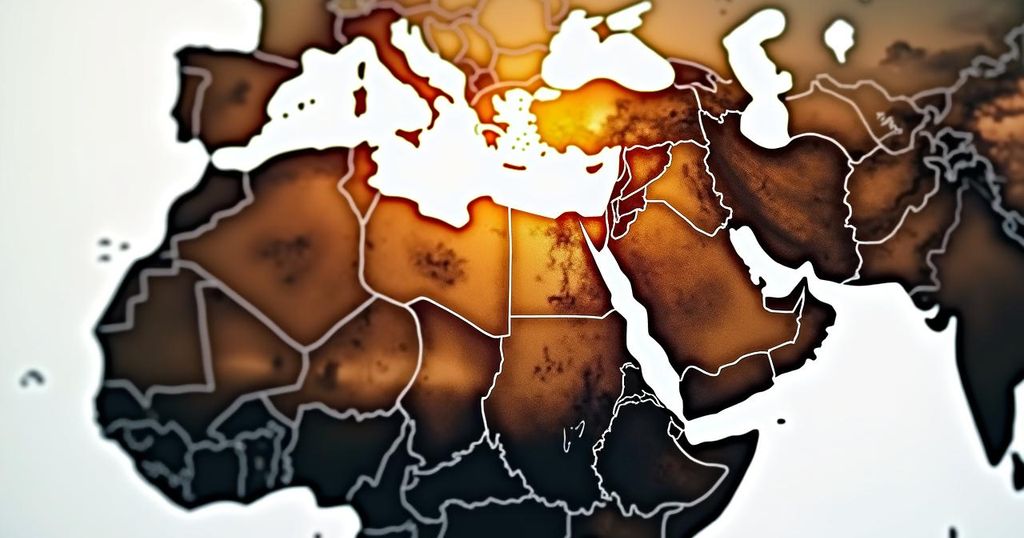The article discusses the recent escalation of military conflict in the Middle East, focusing on Israeli attacks against Hizbollah in Lebanon, the assassination of a Hizbollah leader, and the broader implications for regional stability. It outlines the responses from various stakeholders, the humanitarian crisis emerging from escalating hostilities, and the international ramifications of these developments.
Recent developments in the Middle East have seen a significant escalation in military tensions, particularly involving Israeli actions against Hizbollah in Lebanon and their implications for the regional political landscape. For instance, the targeting of Yemeni rebels has coincided with renewed attacks on the Hizbollah militia, compounding the complexities of the ongoing conflicts. This increase in military engagement is underscored by the recent assassination of a prominent Hizbollah leader, which Israeli officials executed following a year marked by intensified confrontations with this Lebanese militant group. This operation serves as an indication of the depth and quality of intelligence that supported Prime Minister Benjamin Netanyahu’s forces in altering the dynamics of their confrontation with Hizbollah. The assassination, occurring as Israel approaches the anniversary of the tragic October 7 attack by Hamas, which had resulted in the loss of 1,200 lives, has elicited mixed responses among the Lebanese populace. The ramifications of this act have sparked fears of further regional destabilization. Many Lebanese families are reported to be fleeing their homes in the dead of night amid the renewed bombardments, illustrating the dire humanitarian situation that is exacerbated by the escalating military actions. Adding to the precarious situation, Israeli officials and citizens show a spectrum of opinions regarding their military actions against Hizbollah, including proposals for a truce as the Israeli military prepares for a possible ground invasion. The continuous assaults not only threaten lives and stability in Lebanon but may also set in motion a series of events that could lead to wider chaos in the region. Furthermore, the geopolitical strategies of countries in the Middle East are being tested, with many viewing the conflict as a western responsibility to contain. Washington’s frustration with the Israeli government’s adamant approach to pursue operations against Hizbollah reflects the broader international stakes involved. Amidst this turmoil, the mobilization of violent settlers raises alarms among Palestinians regarding their safety, further complicating an already volatile situation. In conclusion, the intertwining conflicts across the Middle East illustrate a complex tapestry of military engagement, political maneuvering, and urgent humanitarian crises. The assassination of Hizbollah’s leader not only represents a tactical gain for Israel but also raises alarming questions about the future stability of Lebanon and the wider region. As tensions continue to grow, the implications of such actions warrant careful consideration by neighboring nations and international stakeholders alike.
The Middle East, a region characterized by long-standing conflicts and political instability, continues to face significant challenges due to various militant groups, notably Hizbollah in Lebanon and Iranian-backed factions in neighboring countries. The assassination of Hizbollah leaders by Israeli forces forms part of a broader strategy to diminish the influence of groups perceived as threats to Israeli security. The ongoing conflict has far-reaching consequences not only for the immediate areas affected but also for regional alliances and international relations, particularly as powers like the United States and Iran seek to assert their interests in the complex geopolitical landscape.
In summary, the events surrounding the assassination of Hizbollah’s leader signify a critical juncture in the Middle Eastern conflict landscape, highlighting the fragile balance of power and the risks of escalation into broader regional disorder. The interplay between military action, political interests, and humanitarian concern will continue to shape the trajectory of this volatile region.
Original Source: www.ft.com







